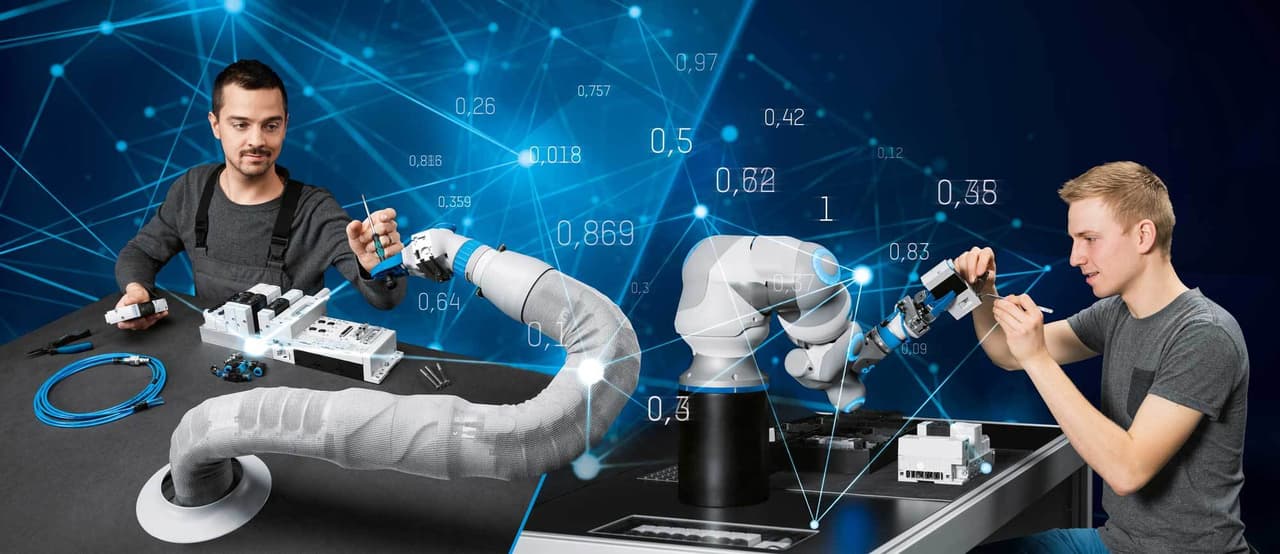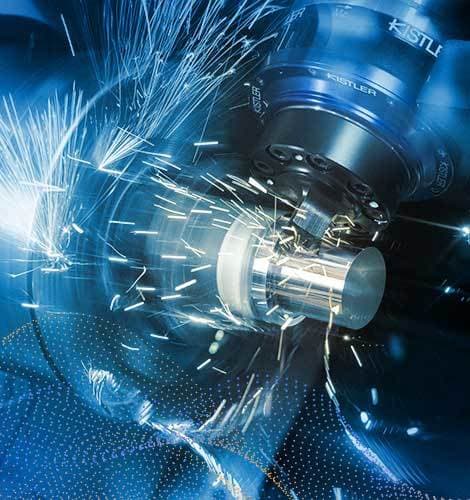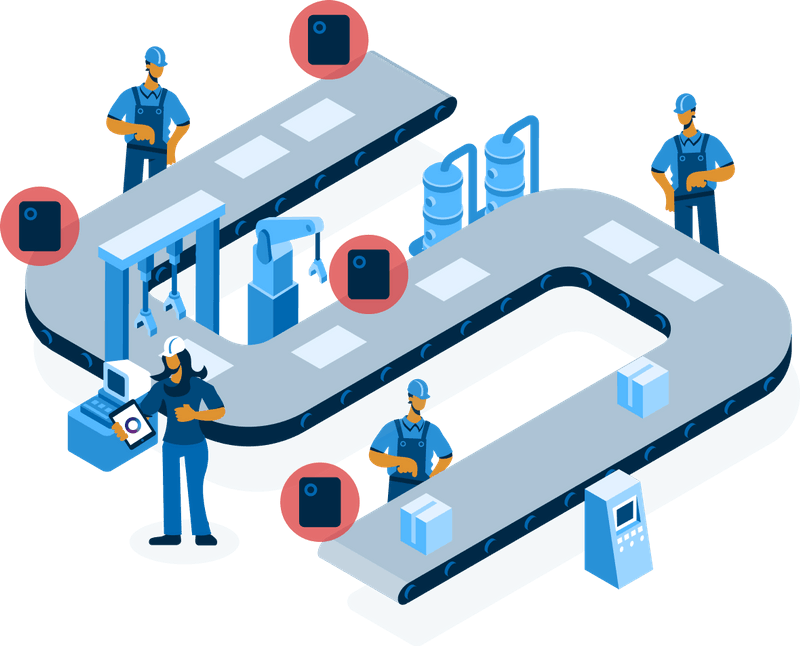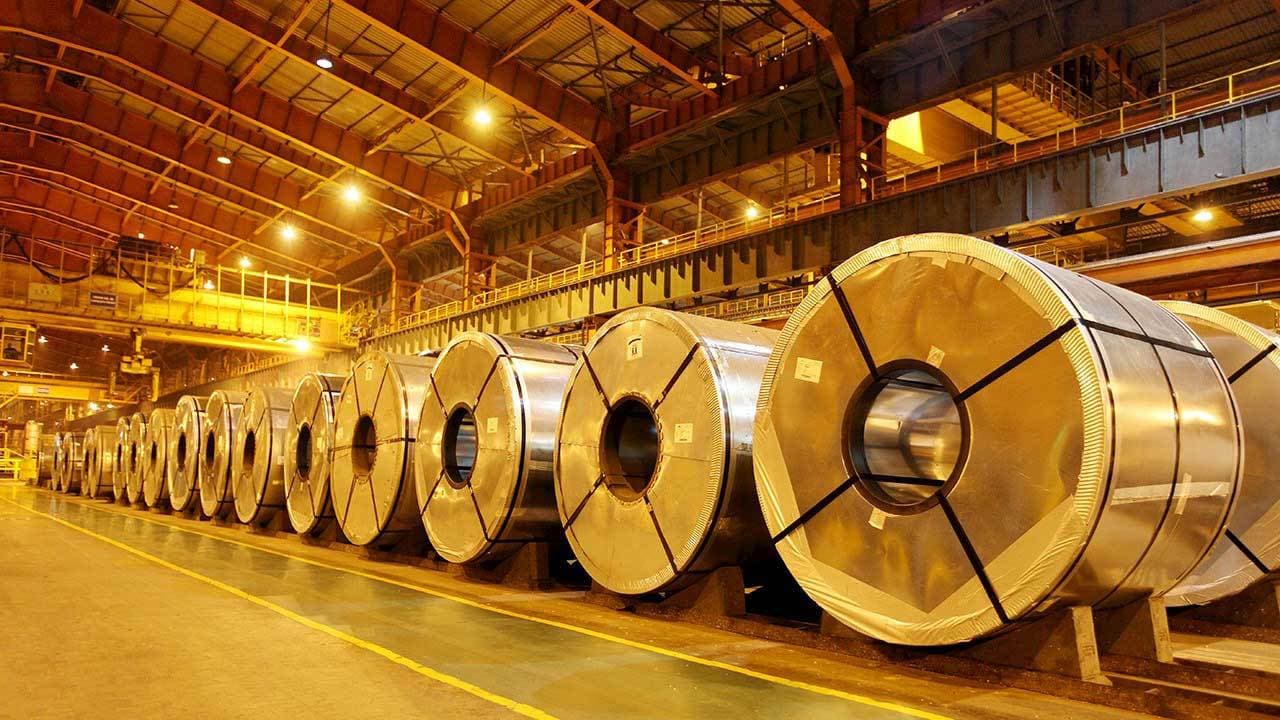FACTORY OF THE FUTURE
IIOT
NEWS
AI Technology Improves Robotic Grippers
A new research project is applying artificial intelligence technology to robotic picking applications.
ISLANDIA, NY—Engineers at Festo and the Karlsruhe Institute of Technology (KIT) are working on a project that harnesses artificial intelligence technology for robotic picking applications.
The goal of FLAIROP (Federated Learning for Robot Picking) is to make robots smarter using distributed AI methods. To do this, the engineers are exploring how to use training data from multiple workstations and multiple plants without requiring participants to hand over sensitive company data.
“We are investigating how the most versatile training data possible from multiple locations can be used to develop more robust and efficient solutions using artificial intelligence algorithms than with data from just one robot,” says Jonathan Auberle, head of the department of robotics and interactive system at KIT’s Institute of Material Handling and Logistics. “In the process, items are further processed by autonomous robots at several picking stations by means of gripping and transferring.”
Four autonomous picking stations were set up to train the robots. At the various stations, the robots are trained with different articles. The goal is to teach them to grasp articles from other stations that they have not yet learned about.
“Through the approach of federated learning, we balance data diversity and data security in an industrial environment,” explains Auberle.
“In the FLAIROP research project, we are developing new ways for robots to learn from each other without sharing sensitive data and company secrets,” adds Jan Seyler, head of advanced development, analytics and control at Festo.
“This brings two major benefits: we protect our customers’ data, and we gain speed because the robots can take over many tasks more quickly,” Seyler points out. “In this way, the collaborative robots can support production workers with repetitive, heavy and tiring tasks.”
The FLAIROP project is a partnership between Canadian and German organizations. The Canadian project partners (DarwinAI Corp. and the University of Waterloo) are focusing on object recognition through AI and deep learning, while their German counterparts are contributing their expertise in robotics, autonomous grasping and data security.

Huge Volumes of Data Harbor Untapped Added Value
Sensors collect vast amounts of data that can help manufacturers optimize processes and generate forecasts.
“Our Innovation Lab is the place where know-how meets the creativity that’s typical of the startup spirit,” claims Pascher. “We have specialists in all the application areas for our sensors. We call on their expertise to help us develop the algorithms and [applications].
“But, we can also learn a lot from our customers,” says Pascher. “Most of all, they provide us with access to data from many different real-life cases. That helps us to adapt our products so [we] are better able to meet the requirements in each situation.”
During a proof of concept study, Pascher and her colleagues were able to use collected measurement values to calculate an algorithm that monitors force distribution throughout the metal cutting process. Deviations from normal conditions were identified with the help of artificial intelligence.
“Instead of merely monitoring processes, we use the collected data to identify patterns and make accurate predictions about the quality of the manufactured products,” notes Pascher.
“We’re still at the very beginning of these developments,” adds Pascher. “In more and more sectors of industry, the coming years will see quantum leaps in the development of new solutions based on machine learning and artificial intelligence.”
WINTERTHUR, Switzerland—The Kistler Group has established an Innovation Lab
here to help manufacturers get the most out of sensors and to leverage the hidden potential lying dormant in vast amounts of measurement data. At the new facility, the company’s experts will work hand in hand with customers and R&D partners to develop intelligent analysis methods, as well as smart data-based products.
“[Our sensors enable manufacturers to] collect data on dynamic measurands, such as pressure, force, torque and acceleration, in a diverse range of applications,” says Nikola Pascher, Ph.D., head of the Innovation Lab at Kistler. “But, in many cases, this data harbors far more potential that has not yet been exploited.
“Many customers and partners are completely unaware of the potential that lies buried in their data, but we intend to change that,” explains Pascher. “There are plenty of areas where we can deliver added value from our sensor technology with the help of data-based analyses and methods.”
To achieve this, algorithms provide the basis for intelligent software that automatically supplies suggested solutions. Over the long term, this plays a key part in optimizing production processes and generating forecasts.

North America’s First Industry 4.0 Accelerator Debuts in Michigan
A new initiative is helping Michigan manufacturers remain at the forefront of Industry 4.0 technology.
LANSING, MI—For more than 100 years, Michigan has been widely recognized as the center of America’s manufacturing know-how. Today, the Wolverine State is building on that rich heritage by being at the forefront of digital manufacturing technology.
Industry 4.0, or the Fourth Industrial Revolution, is defined as the convergence of digital and physical technologies—or digitization—within the manufacturing sector. It is a collection of several emerging technology trends, including additive manufacturing, advanced robotics, augmented and virtual reality, cybersecurity and data analytics.
To ensure that local companies remain competitive, the Michigan Economic Development Corp. has launched an Industry 4.0 Accelerator in partnership with Automation Alley, Lean Rocket Lab and Lawrence Technological University’s Centrepolis Accelerator. The initiative is the first of its kind in North America. It provides resources to support startups developing industry 4.0 technologies and to help Michigan manufacturers adopt these technologies.
The accelerator provides education, programming, coaching, strategic partnerships, a technology-readiness demonstration matching fund, and access to seed stage investment funding that is designed to help manufacturers thrive and grow.
“By attracting and supporting [innovative] startups, and connecting them with [local] manufacturers, we believe Michigan can be a global leader in the Industry 4.0 space,” says Tom Kelly, CEO of Automation Alley. “Our goal is to catalyze a mindset shift within Michigan’s manufacturing community.
“We can help that happen through supporting Michigan-based companies with resources tailored to help them adapt and thrive in an Industry 4.0-fueled market,” explains Kelly. “The accelerator is a huge part of that, giving our partners access to innovative and disruptive technology.”
Within the first few months of launching the initiative, the accelerator has received more than 250 applications, as well as corporate sponsorship and support from major global companies such as Denso, Lear, Siemens and Whirlpool.
Three Michigan-based companies have already benefited from the Industry 4.0 Accelerator: Andonix, Autaza and Invisible AI.
Autaza is a software and hardware company that uses cameras and AI to detect defects in surfaces in a manner far superior to human inspection. Andonix developed a connected worker platform that allows companies to create, access and manage any physical space safely to ensure automated entry. Invisible AI reduces manufacturing costs associated with manual assembly errors through a computer vision platform that tracks body posture and movement.

Data Analytics Helps Improve Plant Decision Making
Data analytics technology helps improve production planning and plant performance optimization.
BHANDARA, India—ABB recently installed a data analytics platform at Sunflag Iron and Steel Co.’s plant here. The project is improving decision making at the steel mill, as well as improving end-to-end production visibility and empowering real-time, data-driven decisions for safer, smarter operations.
Engineers use ABB Ability to improve production planning and plant performance optimization. The plant, which has a capacity to produce 500,000 metric tons of steel annually, now has the ability to integrate data sources across 17 operational areas, including non-ABB systems. Information technology and operational technology has also converged to positively impact Sunflag’s steel melt shop and rolling mills.
The ABB platform was integrated with the existing automation systems for process and quality monitoring in real time, aligning with user-friendly operator dashboards available via a web page. It enables identification and diagnosis of issues, or use of extra resources.
“Together, we’re looking forward to realizing the full benefits of enhanced operations and quality,” says Ragunath Satyan, industry lead for metals at ABB India. “ABB Ability Data Analytics Platform for metals will provide clear advantages in terms of monitoring and troubleshooting daily process and quality issues.
“We have ensured that Sunflag Steel’s people have visualization of real-time plant operations on modern dashboards,” claims Satyan. “This will allow for better decision making and will ultimately show returns in productivity, quality and resource efficiency.”
According to Satyan, ABB’s technology is part of a long-term vision where the physical and digital worlds are connected, scalable and harness machine learning potential.

FACTORY OF THE FUTURE 2021

Scroll to
read full story